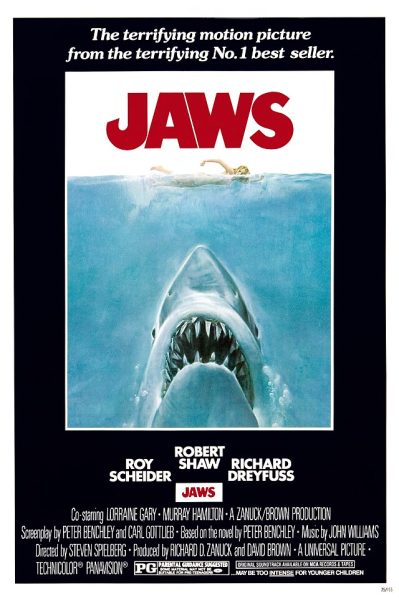How “Everything Everywhere All at Once” Defines The World We Live In
It was the night of August 23rd, last year when I first sat down to watch Everything Everywhere All at Once (EEAAO). The movie, directed by Daniel Kwan and Daniel Scheinert (collectively known as Daniels) and featuring a standout performance of Michelle Yeoh, in what turned out to be her first leading role, tells the story of Evelyn Wang. Yeoh portrays a laundromat owner who must reconnect with her daughter, Joy (Stephanie Hsu), against the backdrop of an impending divorce with her husband Waymond (Ke Huy Quan) and an IRS tax audit performed by Deirdre Beaubeirdre (Jamie Lee Curtis). Also, there are multiverse shenanigans, killer kung-fu action (including some with sex toys), a raccoon, some googly eyes, and some genuinely tear-jerking scenes between the cast members. The themes of nihilism, absurdism, the American dream, the immigrant dilemma, and the value of kindness, are all explored in depth throughout the screenplay. The film has been universally praised by critics and audiences alike, and even before the Academy Awards ceremony has gotten to the point that it is now the most-awarded film in history, beating the record set by The Lord of the Rings: The Return of the King back in 2003. But, more importantly, the film won the hearts of hundreds of thousands of people throughout the world, including my own. This is Everything Everywhere All at Once. This is my Everything.
The night I first saw EEAAO was an odd one for me. I surprised myself, thinking back to that moment when the credits rolled on the film. I do remember enjoying the film, though not as much as I do now. There was a certain feeling within me, that I had an almost spiritual experience watching the film, and I couldn’t quite parcel out my experience with the movie – maybe it was my environment at the time. My parents did not really like or understand the film, and after my mom fell asleep halfway through, my dad lost interest relatively quickly. Honestly, I am surprised I connected as much with the story as I did, considering I am a straight, white male who is four generations removed from any immigrants in my family. I like to think that I fell in love with EEAAO’s technical camerawork, its lower budget filmmaking, and its sheer wackiness of a premise. I stayed on the hype train after learning more about the film; how the film is only the second feature of the Daniels directing duo, how many Asian actors and crew members are involved in the film, how the fight choreographers were found outside of the film industry – on YouTube of all places. Seeing the film I love so much win so many awards was the motivation I needed to really follow the Oscar race for the first time in my life; I watched most of the other competing movies. Deep diving into the multiverse and immersing myself in the film for the past few months allowed me to find a new path through my own life.
EEAAO is a multiverse movie done right. In fact, it is perfect for the moment we live in. I remember listening to interviews with the Daniels, where they discussed how they were toying with the multiverse concept at the same time other multiverse movies like Marvel, Spider-Man, and Rick & Morty. The two were worried that these other franchises would beat them to the punch with their concept. Yet, it is my opinion that EEAAO succeeds despite, or maybe even because of, these other franchises. Despite not having any other content or franchises to go along with it,, EEAAO succeeds mostly as a satire of these other franchises that influenced it. This is a world where anything is possible, where everything has the potential to be the subject of the 24-hour news cycle, the whims of an uncaring social media landscape. When it is becoming increasingly difficult to care about anything in the great expanse of everything around as all the time, it can feel impossible to escape being sucked into this everything. The antagonistic Jobu Tupaki’s plan to escape the infinity of the multiverse via a cosmic everything bagel (don’t ask) is a perfect allegory for this inescapable nature of today’s world. In this world where everything that matters is multiplying without pause, where it is increasingly impossible to feel important in a world where everybody else seems ultra-important, is it not surprising that as many people feel unimportant as they do? How can we hope to find our way back to the world we once knew, if nothing matters enough to us to get there? Jobu Tupaki fights throughout the infinite complexity of existence, looking only for the simplicity of love from a caring mother, the joy that can only exist out of love. Jobu’s searching comes from an internal feeling of love, a love that is not enough to dissuade her of her nihilistic thoughts but is enough to drive her to Evelyn, to search for the mother that might finally understand her enough to break free from the bounds of society.
And then there’s Waymond Wang. The heart and soul of EEAAO, Ke Huy Quan brings to the screen a powerful performance that brilliantly disguises the fact that the former child star of Indiana Jones and the Temple of Doom and The Goonies had not acted for over twenty years. Yet, like his real-life persona, Waymond Wang exudes kindness and generosity in every frame he is on screen. His message of hope, that kindness is the strongest superpower is something that I think many people need to hear now. “When I choose to see the good side of things, I’m not being naïve,” an alternate universe version of Waymond says in perhaps the film’s most poignant scene. “It is strategic and necessary. It’s how I’ve learned to survive through everything… I know you see yourself as a fighter. Well, I see myself as one, too. This is how I fight.” Waymond is the one that inspires Evelyn to fight for what really matters: kindness. Not nihilism, but absurdism. After Waymond imparts his wisdom, here comes the realization that yes, nothing matters. But if one thing does matter, then it is the love and kindness that a mother feels for her child, something that can never truly be taken away from anybody, bagels be damned. If nothing matters, you can do anything you want. If nothing matters, then everything does.



